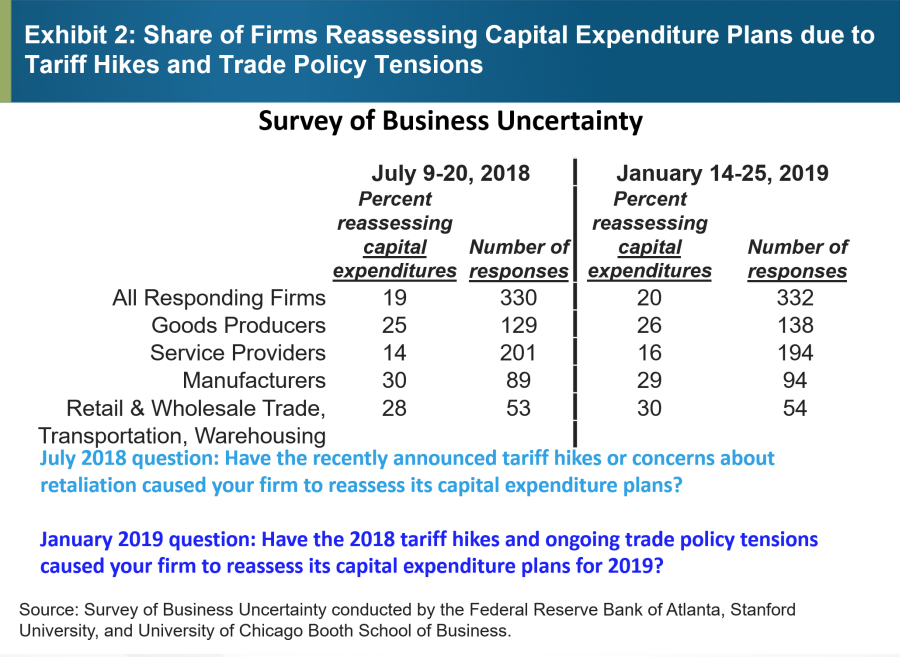Understanding The Value Of Middle Managers In Today's Workplace

Table of Contents
Bridging the Gap: Middle Managers as Communicators and Translators
Middle managers act as a vital link, ensuring clear and consistent communication flows throughout the organization. Their role is not simply to pass on directives; it's about facilitating understanding and collaboration.
Effective Communication Across Departments
Middle managers play a crucial role in translating complex strategic goals from upper management into actionable plans for frontline employees. This involves:
- Relaying strategic goals: Breaking down complex company-wide strategies into smaller, manageable objectives for individual teams.
- Translating complex directives: Simplifying complicated instructions and ensuring everyone understands their roles and responsibilities.
- Gathering feedback from teams: Acting as a conduit for upward communication, conveying employee concerns and suggestions to senior leadership.
- Improving inter-departmental understanding: Facilitating collaboration and communication between different departments to ensure seamless workflows.
- Fostering a transparent work environment: Creating an atmosphere of open communication and trust, where employees feel comfortable sharing their ideas and concerns.
Managing Information Flow
The information overload in modern organizations can be crippling. Middle managers are crucial in filtering and prioritizing information, preventing bottlenecks and ensuring efficient communication. This includes:
- Identifying crucial information: Discerning key updates and relevant data that need immediate attention.
- Prioritizing tasks: Allocating resources effectively to ensure the most important projects are completed on time.
- Preventing information silos: Breaking down barriers between departments and promoting the free flow of information.
- Disseminating updates effectively: Ensuring that all team members receive timely and relevant information.
- Acting as a central point of contact: Serving as a go-to person for various teams, streamlining communication and reducing confusion.
Driving Performance and Productivity: The Role of Middle Managers in Goal Achievement
Effective middle managers are instrumental in driving performance and achieving organizational goals. They don't just delegate tasks; they cultivate a high-performing team.
Setting and Monitoring Team Goals
Middle managers are responsible for setting achievable goals, tracking progress, and providing support to their teams. This involves:
- Establishing clear objectives: Defining specific, measurable, achievable, relevant, and time-bound (SMART) goals.
- Assigning tasks effectively: Delegating work based on individual skills and capabilities.
- Tracking team performance: Monitoring progress towards goals and identifying potential roadblocks.
- Providing regular feedback: Offering constructive criticism and positive reinforcement to enhance performance.
- Coaching team members: Providing guidance and support to help employees develop their skills and reach their full potential.
- Resolving conflicts constructively: Addressing disagreements and fostering a collaborative work environment.
- Motivating teams: Inspiring and encouraging team members to achieve their best.
Fostering a Culture of Accountability
Middle managers cultivate a supportive yet results-oriented environment where team members are held accountable for their performance. This involves:
- Promoting team collaboration: Fostering teamwork and a sense of shared responsibility.
- Recognizing and rewarding achievements: Acknowledging and celebrating individual and team successes.
- Addressing performance issues proactively: Identifying and addressing performance gaps promptly and constructively.
- Providing constructive criticism: Offering feedback that is specific, actionable, and focused on improvement.
- Ensuring fair treatment for all team members: Creating an equitable and inclusive work environment.
Talent Development and Mentorship: Middle Managers as Crucial Contributors to Employee Growth
Middle managers are not just taskmasters; they are also mentors and talent developers, crucial for long-term organizational success.
Identifying and Nurturing Talent
Middle managers play a key role in identifying high-potential employees and providing them with opportunities for growth. This involves:
- Mentoring junior team members: Providing guidance and support to help junior employees develop their skills and advance their careers.
- Providing training and development opportunities: Identifying training needs and recommending relevant programs.
- Identifying leadership potential: Recognizing employees who possess leadership qualities and providing them with opportunities to develop their leadership skills.
- Offering career guidance: Helping employees to plan their career paths and set realistic goals.
- Fostering employee engagement and retention: Creating a positive and supportive work environment that motivates employees to stay with the organization.
Succession Planning and Knowledge Transfer
Middle managers are essential to succession planning and ensuring the organization's long-term health by developing future leaders:
- Identifying future leaders within the team: Spotting individuals with leadership potential and providing them with opportunities to develop their skills.
- Facilitating knowledge transfer between generations: Ensuring that institutional knowledge is passed down to younger employees.
- Ensuring smooth transitions during team member departures: Minimizing disruption and ensuring that projects continue to progress smoothly.
- Contributing to long-term organizational stability: Building a strong pipeline of talent to support the organization's future growth.
The Business Impact: How Effective Middle Management Boosts Organizational Outcomes
The impact of effective middle management extends beyond individual team performance; it directly contributes to the overall success of the organization.
Improved Employee Morale and Engagement
Supportive middle managers significantly improve employee satisfaction and retention. This is achieved through:
- Creating a positive work environment: Fostering a culture of respect, collaboration, and trust.
- Fostering open communication: Creating channels for employees to express their ideas and concerns.
- Providing regular feedback: Giving employees regular updates on their performance and providing constructive criticism.
- Demonstrating appreciation: Recognizing and rewarding employees for their contributions.
- Addressing employee concerns: Responding promptly and effectively to employee concerns and complaints.
- Increasing employee loyalty: Creating a work environment where employees feel valued and appreciated.
Increased Productivity and Efficiency
Effective middle management directly translates to enhanced business outcomes:
- Streamlined processes: Improving efficiency by optimizing workflows and eliminating redundancies.
- Improved project management: Ensuring that projects are completed on time and within budget.
- Reduced errors: Minimizing mistakes by providing clear instructions and effective oversight.
- Enhanced team cohesion: Building strong teams that work together effectively.
- Increased output: Boosting productivity and achieving higher levels of output.
- Higher-quality work: Ensuring that work is completed to a high standard of quality.
Conclusion: Recognizing and Investing in the Value of Middle Managers
In summary, middle managers are not merely a layer of management; they are the backbone of organizational success. Their roles in communication, performance management, talent development, and overall organizational effectiveness are undeniable. Recognizing their value and investing in their development is not just beneficial—it's essential. Investing in your middle managers is investing in the future success of your organization. Start today by evaluating your current middle management support and exploring training programs designed to empower your team leaders and improve their effectiveness as high-performing middle managers.

Featured Posts
-
 Anthony Edwards Nba Imposes 50 K Fine For Offensive Remarks To Fan
Apr 29, 2025
Anthony Edwards Nba Imposes 50 K Fine For Offensive Remarks To Fan
Apr 29, 2025 -
 U S Businesses Implement Cost Cutting Strategies In Face Of Tariff Volatility
Apr 29, 2025
U S Businesses Implement Cost Cutting Strategies In Face Of Tariff Volatility
Apr 29, 2025 -
 Twins Win 6 3 Over Mets Taking Middle Game Of Series
Apr 29, 2025
Twins Win 6 3 Over Mets Taking Middle Game Of Series
Apr 29, 2025 -
 Mlb Twins Edge Out Mets 6 3 In Series Game
Apr 29, 2025
Mlb Twins Edge Out Mets 6 3 In Series Game
Apr 29, 2025 -
 Wildfire Betting A Reflection Of Modern Societys Response To Disaster In Los Angeles
Apr 29, 2025
Wildfire Betting A Reflection Of Modern Societys Response To Disaster In Los Angeles
Apr 29, 2025
Latest Posts
-
 Top Universities Unite In Private Group To Challenge Trump Policies
Apr 29, 2025
Top Universities Unite In Private Group To Challenge Trump Policies
Apr 29, 2025 -
 Elite Universities Form Secret Coalition To Oppose Trump Administration
Apr 29, 2025
Elite Universities Form Secret Coalition To Oppose Trump Administration
Apr 29, 2025 -
 Beyond Quinoa Exploring The Health Benefits Of The Newest Supercrop
Apr 29, 2025
Beyond Quinoa Exploring The Health Benefits Of The Newest Supercrop
Apr 29, 2025 -
 Is This The New Quinoa A Look At The Latest Superfood Trend
Apr 29, 2025
Is This The New Quinoa A Look At The Latest Superfood Trend
Apr 29, 2025 -
 Quinoas New Rival The Rising Star Of Superfoods
Apr 29, 2025
Quinoas New Rival The Rising Star Of Superfoods
Apr 29, 2025
